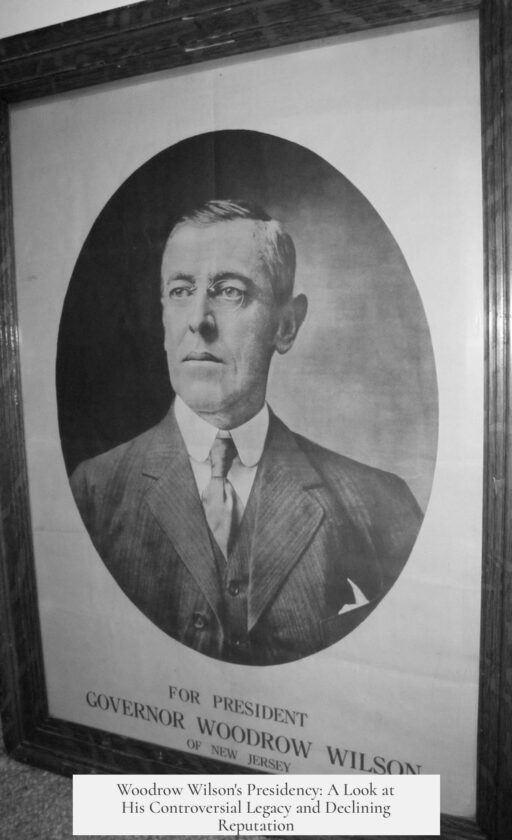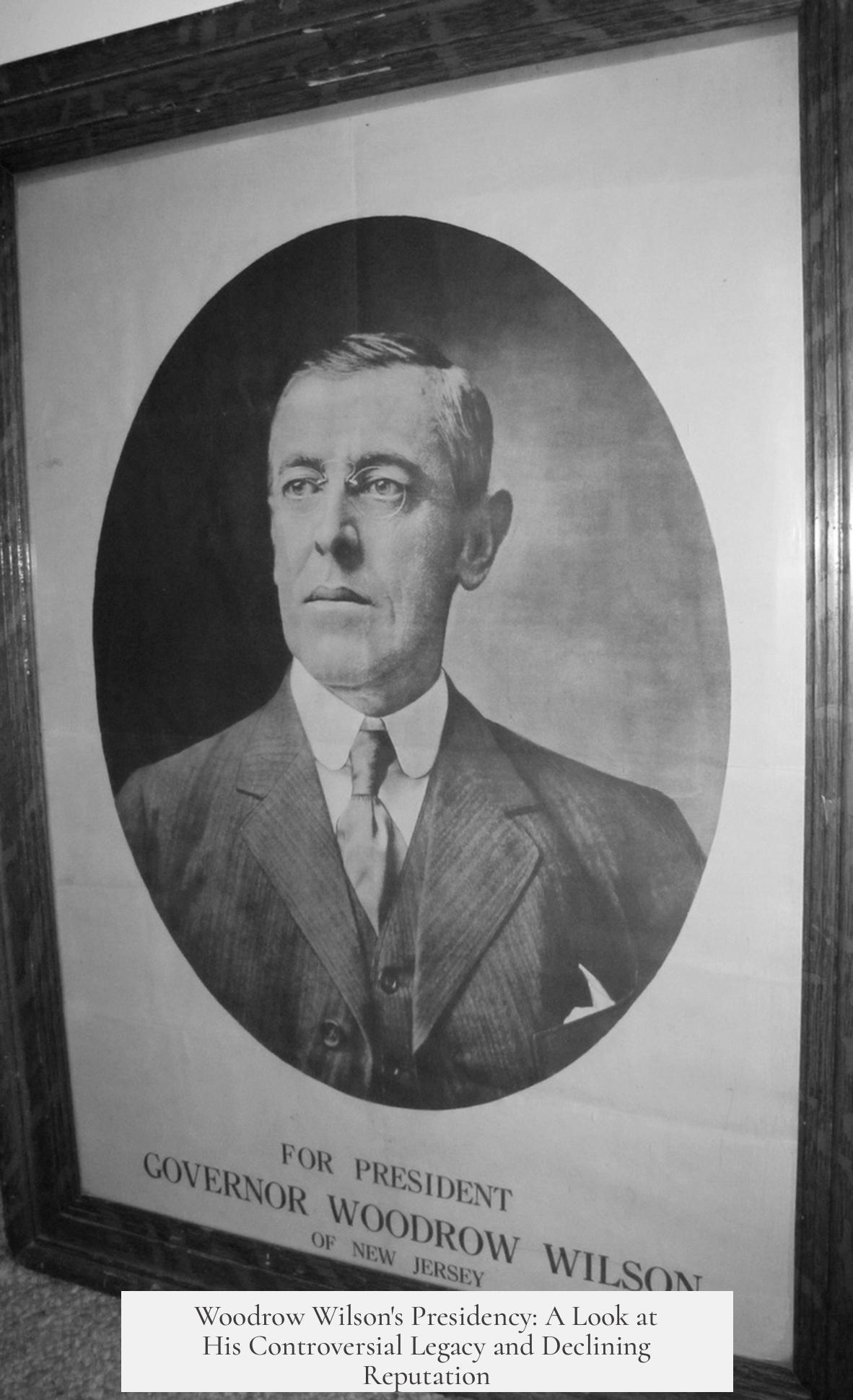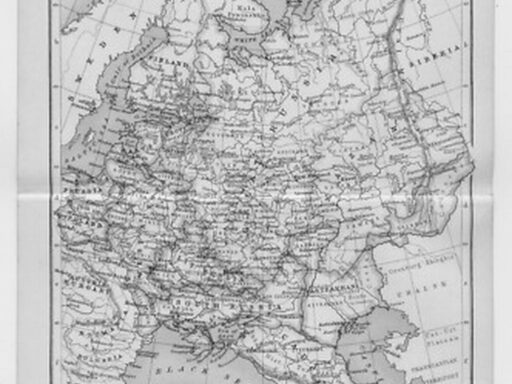Woodrow Wilson is considered a bad president due to his expansion of federal power, reinforcement of racial segregation, mishandling of international diplomacy, and harsh treatment of dissenters during his administration.
Wilson’s presidency left a mixed legacy. Critics target several key issues that continue to define how history judges him. These include his role in deepening Jim Crow laws, establishing the Federal Reserve, involvement in World War I, and suppressing socialist and communist movements.
Wilson oversaw a significant expansion of federal authority. Conservatives dislike this, viewing it as government overreach. Wilson backed federal institutions and regulations to stabilize the economy and enforce progressive reforms. The creation of the Federal Reserve in 1913 is a controversial hallmark. Libertarians particularly oppose the Fed, seeing it as an infringement on free-market principles, responsible for economic manipulation.
Wilson aggravated racial inequalities by strengthening Jim Crow laws. As the first Southern-born president since the Civil War, he aligned federal policies with Southern segregation practices. The Civil Service Commission’s 1914 mandate to include photos in job applications effectively barred Black Americans from many federal jobs. Wilson ended the commissioning of Black officers in the Army and Navy and institutionalized racial segregation within the Navy. Washington D.C.—previously one of the few places for Black upward mobility—saw those opportunities shut down.
The effect was a long-term setback for Black economic progress and representation in government institutions. Racial violence surged during Wilson’s administration. Lynchings of Black veterans returning from World War I increased, although Wilson was debilitated by a stroke at the time. Liberals and civil rights advocates cite this racial hardening as a major reason for his poor reputation.
Wilson’s foreign policy also attracts criticism. He led the United States into World War I after Congress’s bipartisan approval. Many isolationists reject his role in engaging America in the international system. His efforts to get the League of Nations treaty ratified failed in the Senate, which many view as a diplomatic blunder. Supporters argue that he tried to promote a new world order of peace, but his inability to secure Senate approval diminished U.S. influence in global affairs.
Wilson’s response to socialists and communists was often harsh. He enacted laws to curb dissent, including the Espionage Act of 1917 and Sedition Act of 1918. This crackdown alarmed civil libertarians and the left, seeing it as an attack on free speech and political opposition. The Red Scare and suppression of labor movements under Wilson’s watch deepened distrust in his leadership from certain groups.
Some of Wilson’s failures can be attributed to wider systemic and political factors. Congress played a major role in both domestic and foreign policy, including the war declaration and many segregation laws. The rollback of Black rights was not unique to Wilson but reflected broader Southern state practices. His policies had significant support from white Southern voters and many progressives who demanded government action against corporate abuses and economic instability.
Popular opinion at the time largely backed Wilson’s reforms, even if they caused harm to certain communities. The Federal Reserve emerged as a bipartisan solution to repeated banking crises, welcomed by many Americans. The Democratic Party won strong majorities partly due to hopes for progressive government solutions. However, this support does not absolve Wilson of responsibility for the negative consequences of his leadership.
Wilson’s reputation has declined sharply over the last few decades. Historians and the public increasingly criticize his racial policies and authoritarian impulses. Only Thomas Jefferson’s legacy compares in terms of reputational falloff. Despite his accomplishments, Wilson remains controversial because his shortcomings had lasting social and political damage.
| Key Criticisms of Wilson | Details |
|---|---|
| Expansion of Federal Power | Federal government grew under Wilson, upsetting conservatives. |
| Creation of Federal Reserve | Established in 1913, seen as controlling economy. |
| Hardening Jim Crow Laws | Segregation expanded in federal jobs and military; blocked Black advancement. |
| Entanglement in World Affairs | Led U.S. into WWI; failed League of Nations treaty in Senate. |
| Suppression of Dissent | Harsh actions against socialists and communists; limited free speech. |
- Wilson expanded federal government power, sparking conservative opposition.
- He deepened racial segregation policies, damaging Black Americans’ opportunities.
- His foreign policy decisions led U.S. into WWI and failed League diplomacy.
- Wilson suppressed dissent, alarming civil libertarians and the left.
- Many of his policies had popular and congressional support at the time.
Why is Woodrow Wilson considered to be a bad President?
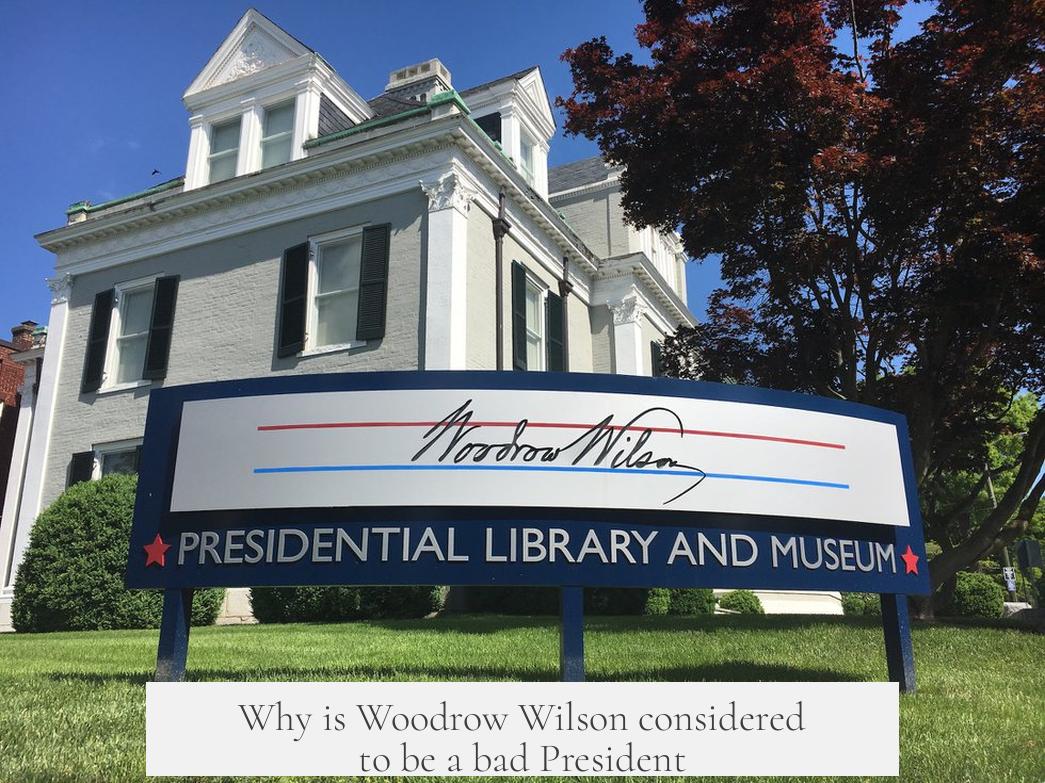
Woodrow Wilson’s presidency is often criticized for several major reasons that collectively explain why many consider him a bad president. His tenure includes the hardening of racial segregation policies, controversial expansion of federal power, poor handling of international diplomacy, and a crackdown on socialists and communists. But why do these issues stick out, and what made his reputation take such a nosedive? Let’s unpack this with a bit of clarity and a dash of skepticism towards pop history.
First, Wilson’s era was complex. He entered the White House as the first Southern-born president since the Civil War, during a time when racial progress was already being rolled back across America. This context helps explain some—but certainly not excuse—his actions.
The Hardening of Jim Crow: A Dark Legacy
One of the most damning criticisms of Wilson is his role in entrenching Jim Crow laws at the federal level. Before Wilson, there was an informal understanding in the federal government to allocate some government positions to Black Americans, creating a limited but real path toward federal employment and upward mobility. Wilson shattered that.
In 1914, the U.S. Civil Service Commission mandated submitting personal photographs with job applications. This seemingly banal requirement was a sneaky tactic to bar Black applicants discreetly. The Army and Navy stopped commissioning new Black officers, and the Navy reversed its previous lack of formal segregation. Washington D.C., one of the few places Blacks could climb the social ladder, saw those doors slammed shut by Wilson’s policies.
The consequences? Long-lasting setbacks in Black wealth, professional advancement, and civil rights. This was not a small wrinkle but a substantial regression, especially tragic given the broader struggle for equality.
To pile on, a surge of lynchings targeted Black veterans returning from World War I during Wilson’s incapacitation after his stroke. While Wilson’s health limited his direct involvement, his administration’s overall stance and failure to intervene do not paint a flattering picture.
Federal Power Expansion: A Balancing Act Gone Awry?
Wilson’s presidency also marks a critical expansion of federal power, which conservatives often blame him for. The creation of the Federal Reserve in 1913 is a key example. For libertarians and free-market advocates, this institution symbolizes government overreach into the financial sector. Yet, in reality, this move enjoyed bipartisan support. The banking crises and economic instability of the early 1900s made a strong, stable central bank a popular necessity.
Wilson’s economic policies were part of a broader progressive movement aimed at reining in corporate excesses. Democrats gained Congressional majorities partly due to the public’s desire for this reform. So while Wilson can take credit—and blame—for expanding federal power, this came as a response to public demand for stability and fairness, not whimsical grasp for control.
International Entanglements and The League of Nations Fiasco
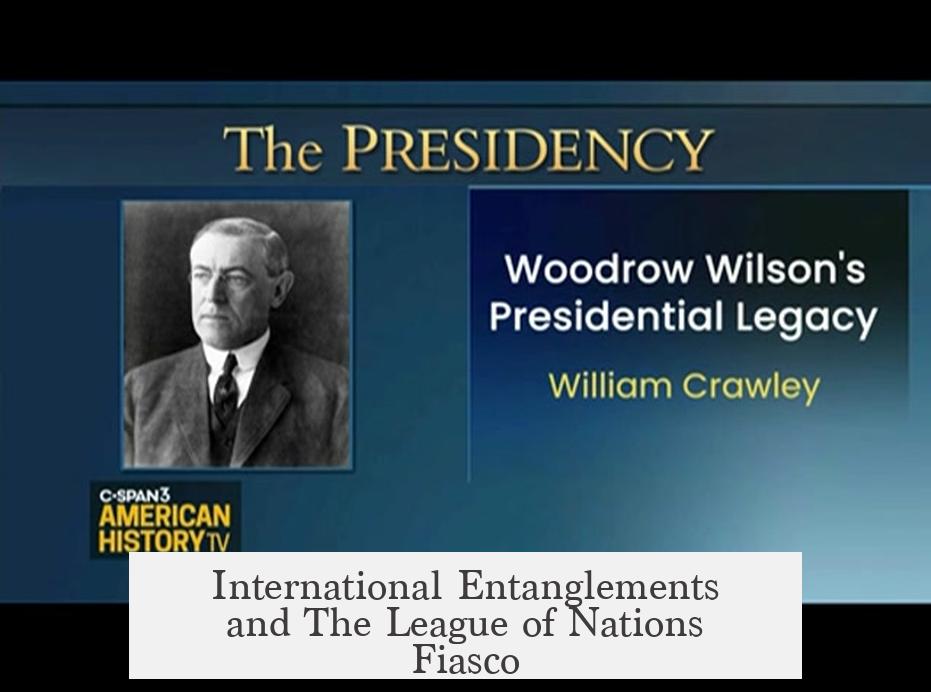
Wilson famously pushed the United States into World War I after years of isolationist tradition. This, of course, drew ire from isolationists who hate anything that involves the U.S. in global affairs.
After the war, Wilson championed the creation of the League of Nations to maintain global peace. However, his handling of getting the treaty ratified by the Senate is widely regarded as a debacle. The Senate, backed by strong opposition, rejected U.S. participation—a missed opportunity perhaps, but also a failure of Wilson’s political tact and stamina.
Handling of Socialists and Communists
Wilson’s administration was harsh on socialists and communists, implementing overbearing policies that alarmed civil libertarians and political leftists alike. The Red Scare, crackdowns on dissent, and the suppression of labor strikes all happened under his watch.
This heavy-handedness alienated many groups and painted Wilson as a suppressor of free speech and political diversity.
Popular Support and Shared Responsibility
Time for a reminder: Wilson’s policies often reflected the will—or at least the acquiescence—of many Americans. His tough stance on segregation was sadly popular in the South. The Federal Reserve enjoyed bipartisan support. The decision to enter World War I had widespread Congressional backing due to Germany’s aggression, including attacks on American ships and citizens.
Still, it’s important not to downplay Congress’s role or the broader context. Wilson did not work in a vacuum. Much of what he did built on existing practices and public demand.
The Decline of Wilson’s Reputation: A Lesson in Historical Perspective
Over the past 40 years, Wilson’s reputation has plummeted—especially compared to earlier decades when he was more lauded as a progressive leader and idealist. Today, many historians and the public view him with a much more critical eye, only rivaled by Thomas Jefferson in terms of reputational decline.
Why the big fall? Partly because the social and racial harm he is linked to is now front and center, and society’s values have shifted considerably. Pop history often condenses complex legacies into an oversimplified mix of good and bad, but Wilson’s case defies easy categorization.
So, why is Wilson considered a bad president? Because his legacy mixes significant policy achievements with profound moral and political failures. His expansion of federal institutions stabilized the economy, but simultaneously, he deepened racial segregation and mishandled international diplomacy. On balance, for many, the costs—especially regarding race and civil liberties—overshadow his gains.
It’s a reminder that history—and presidents—are complicated. They reflect their times and their flaws, and understanding Wilson requires wrestling with uncomfortable truths as well as his achievements. How does that shape your view of leadership and legacy?
